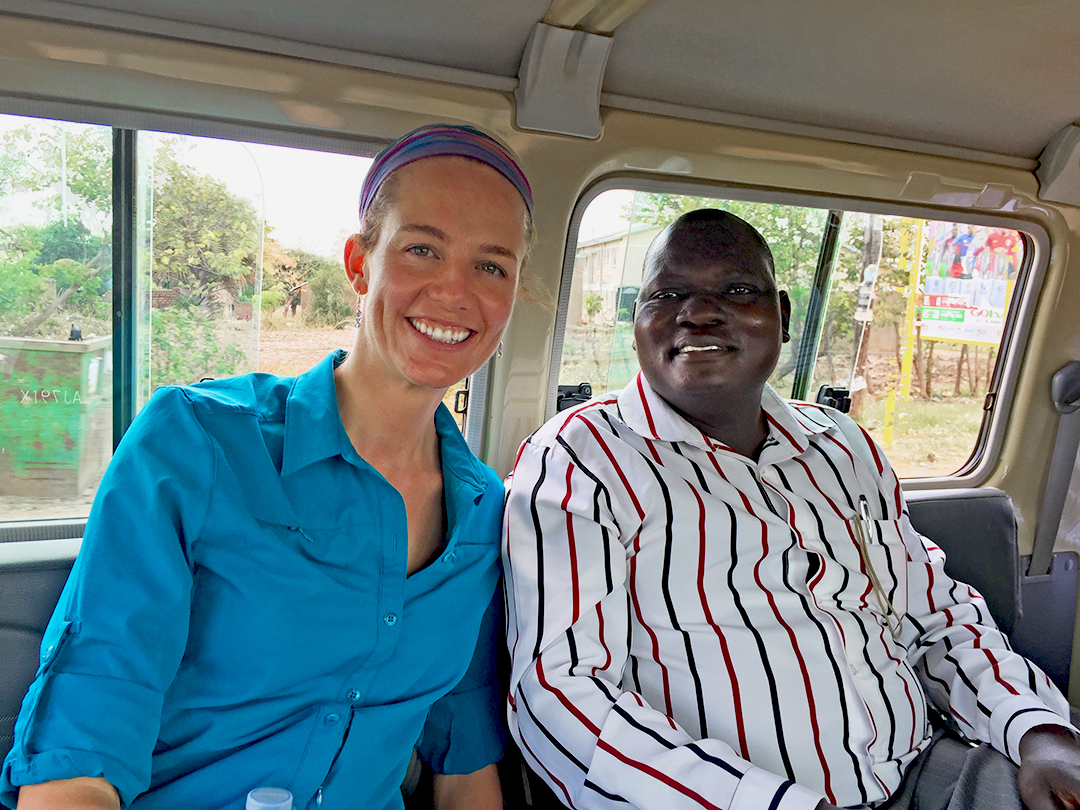Vector-borne Disease Surveillance and Research in Uganda Expands Laboratory Capacity

CDC Epidemiologist Kiersten Kugeler, DVBD, and Titus Apangu, an epidemiologist in the Arua Plague Lab, have been working to strengthen Uganda’s laboratory capacity for detecting vector-borne diseases.
Uganda is a focal point for emerging and re-emerging infectious diseases. Many mosquito-borne viruses, known as arboviruses, were discovered in Uganda and continue to circulate. Outbreaks of viral hemorrhagic fevers, including Ebola, Marburg, and yellow fever occur periodically, and plague remains endemic in the highlands of the West Nile region.
Outside of the capital city of Kampala, Uganda has a basic healthcare infrastructure with limited capacity to detect or respond to outbreaks. In collaboration with the Uganda Virus Research Institute (UVRI), NCEZID’s Division of Vector-borne Diseases (DVBD) has worked in Uganda for the past two decades to build much needed diagnostic capacity for arboviruses and improve systems for plague prevention, detection and control.
The joint DVBD-UVRI Plague Program based in the West Nile region of Uganda has improved early case recognition, accurate treatment, intervention, control, and education of public health workers and the broader public. The program has also created a network of more than 1,500 volunteers trained to report suspect cases, which helps to decrease the frequency and severity of outbreaks. This collaborative program has also strengthened the diagnostic and treatment capacity for plague within the country by evaluating a rapid, bedside test for plague; assessing improved treatment options for those infected and engaging traditional medicine practitioners in this work; and training rapid epidemic response teams in quickly recognizing and stopping the signs of an outbreak.
DVBD has also provided oversight and technical assistance to UVRI over the last few years to build an arbovirus diagnostic laboratory that can now test for yellow fever, West Nile virus, Zika virus, and other viruses. Because of this strong collaboration, in 2016 a yellow fever outbreak was detected in only four days, compared to a 2010 outbreak that took 40 days to detect.
To view a printable version of this page: Vector-borne Disease Surveillance and Research in Uganda Expands Laboratory Capacity [PDF – 1 page]
